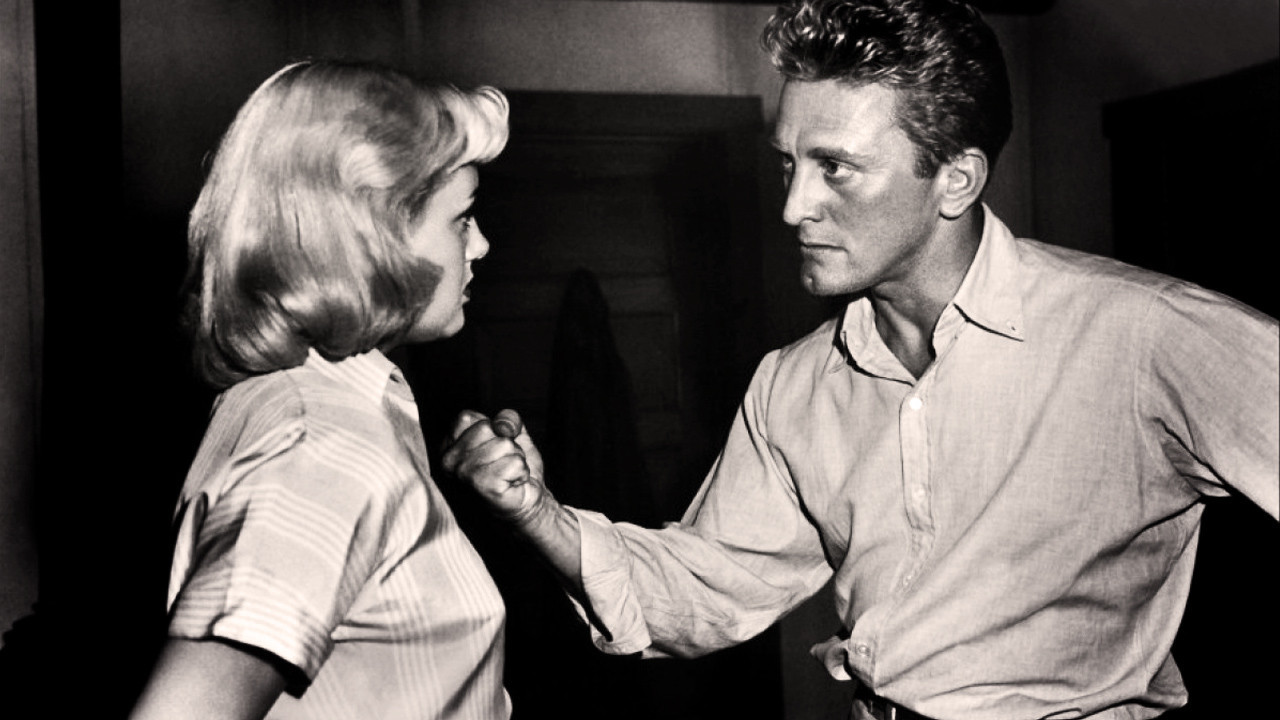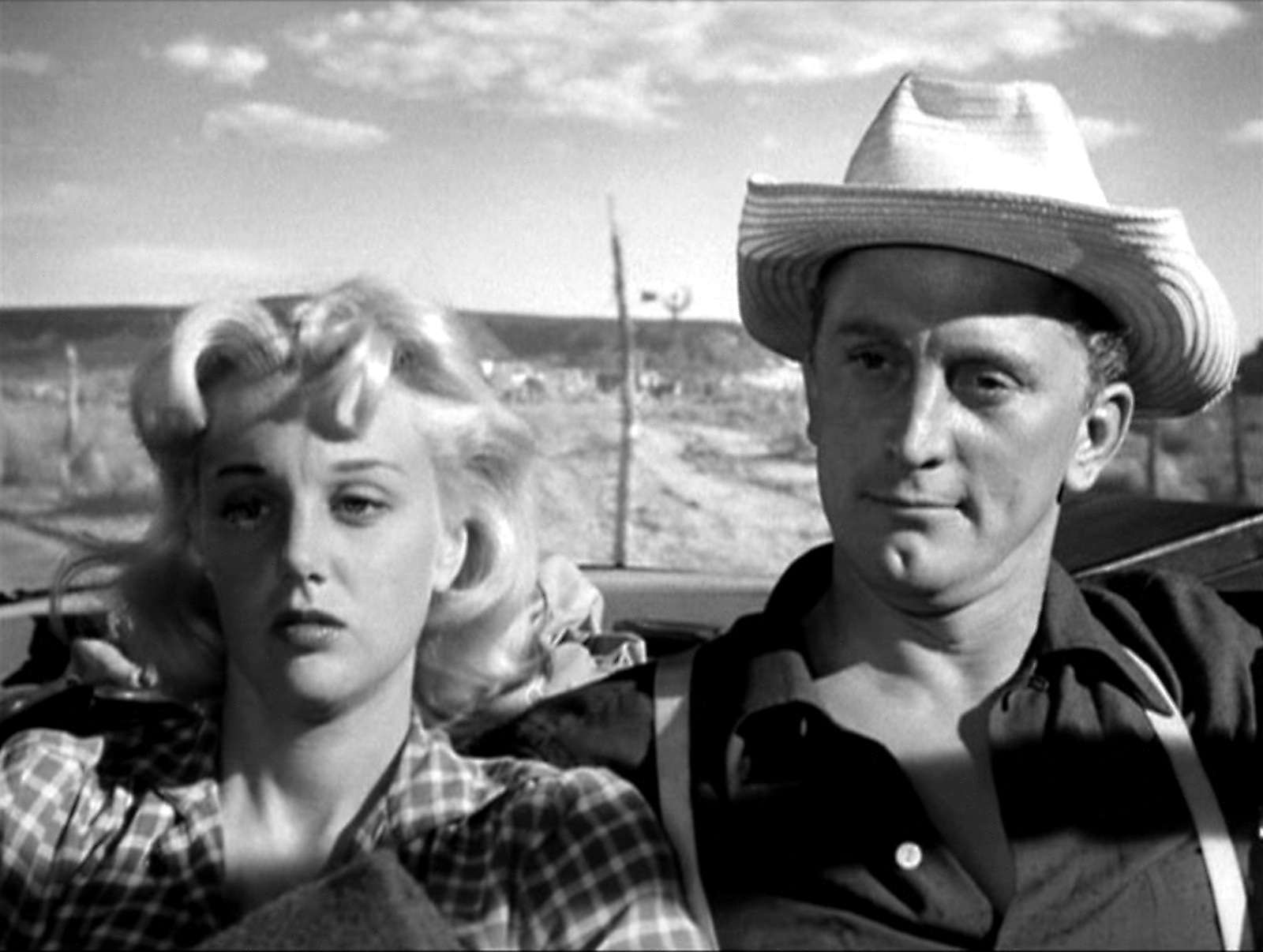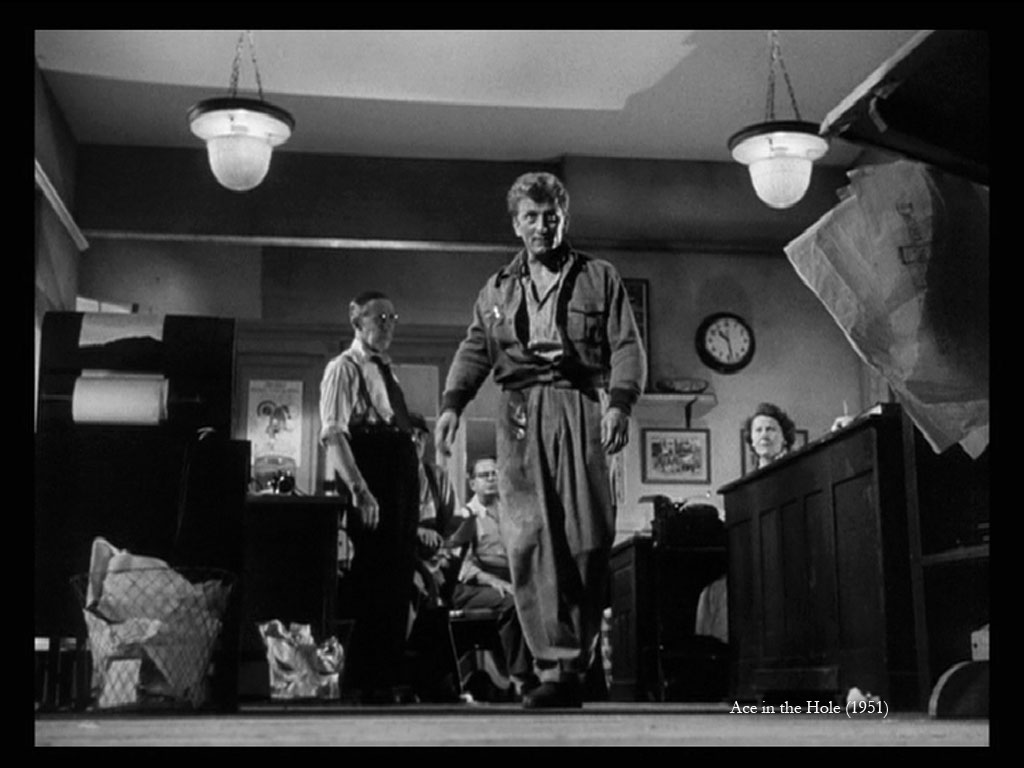Things Ace in the Hole is: A fantastic movie. A perfect showpiece for Kirk Douglas. One of the tightest scripts Wilder ever wrote, with a perfect first half hour.
Things Ace in the Hole isn’t, really: a cynical satire.
I know this is a bold, slightly preposterous statement, and I suppose I’m framing it more strongly than I need to. After all, Ace in the Hole certainly criticizes newspaper sensationalism and the hollow ethics of journalists. But, despite the pitch that’s emerged since it has been rediscovered by film lovers after a miserable first run: at its core, it is more a melodrama than a satire of anything.

Ace in the Hole rests on one of the most melodramatically perfect characters ever, Leo (Richard Benedict), who ranks up with Little Nell in his suffering purity. His perfection is the film’s entire narrative edifice. It is the overwhelming lack of cynicism about him as a character that belies the idea of the movie as harsh and blackened.
It’s Leo’s overwhelming purity that begins to purify Chuck Tatum, Kirk Douglas’ scenery-chewing newspaper man, down on his luck and stuck in Albequerque, New Mexico (which, the movie seems to think, is a tiny town in the middle of nowhere). And it is that same impossible purity that leads to the characterization of Leo’s wife as the most cartoonishly evil woman imaginable.

It’s in her character – Lorraine, played to perfection by Jan Sterling – that reveals how gendered the movie’s would-be cynicism really is. Is it really so impossible to imagine that a woman who is constantly trying to escape her husband — a husband who, we are told casually, chases after her and drags her back every time she tries to run away — would not be particularly broken up about his death? Or, that she would use the excuse of his cave-in to make it farther than she had in the past?
To be properly cynical, one needs compassion. To be cynical is to not believe much in the reasons people give for their actions, and to suspect something much more primal and animal behind them: acquisitiveness, greed, and whatever else. But there is a compassion that lurks in that belief, one that understands why people feel the need for more. And there is no compassion for Lorraine’s plainly-stated desires in the movie.
 Instead, she’s the classic melodramatic villain, closer to Ralph Nickleby than anything else. Her real purpose is to bring about the narratively necessary death scene, one that is barely parseable within the logic of the film itself.
Instead, she’s the classic melodramatic villain, closer to Ralph Nickleby than anything else. Her real purpose is to bring about the narratively necessary death scene, one that is barely parseable within the logic of the film itself.
When Tatum, filled with rage at her coldness, attacks her, she seemingly stabs him (in an incredibly unclear cut), but he still manages to stumble around for what seems to be, in narrative, a full 24 hours afterwards.
It’s a classic melodrama ending to a wonderful melodrama story. And that makes it far more interesting than simply another cynical satire.

